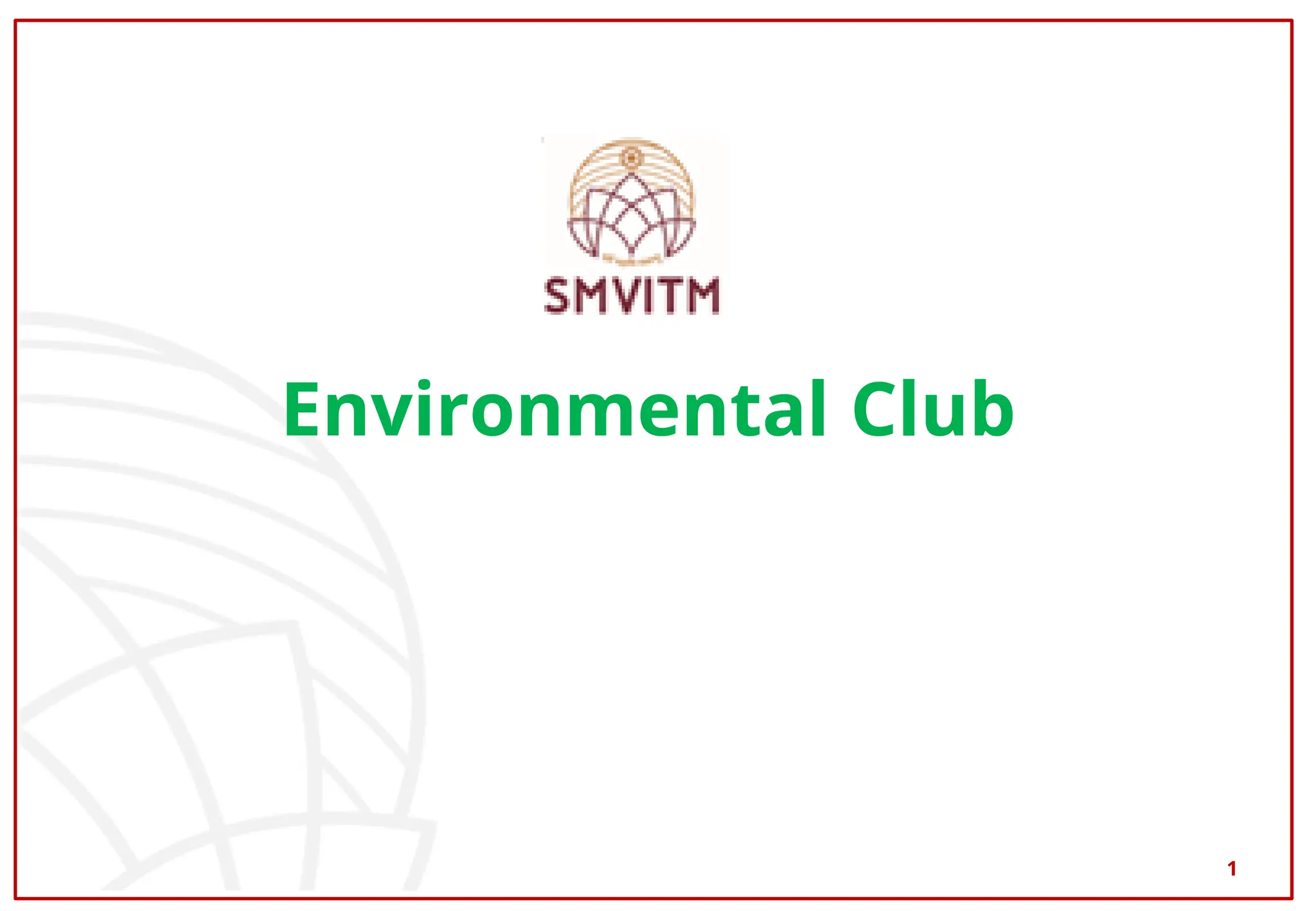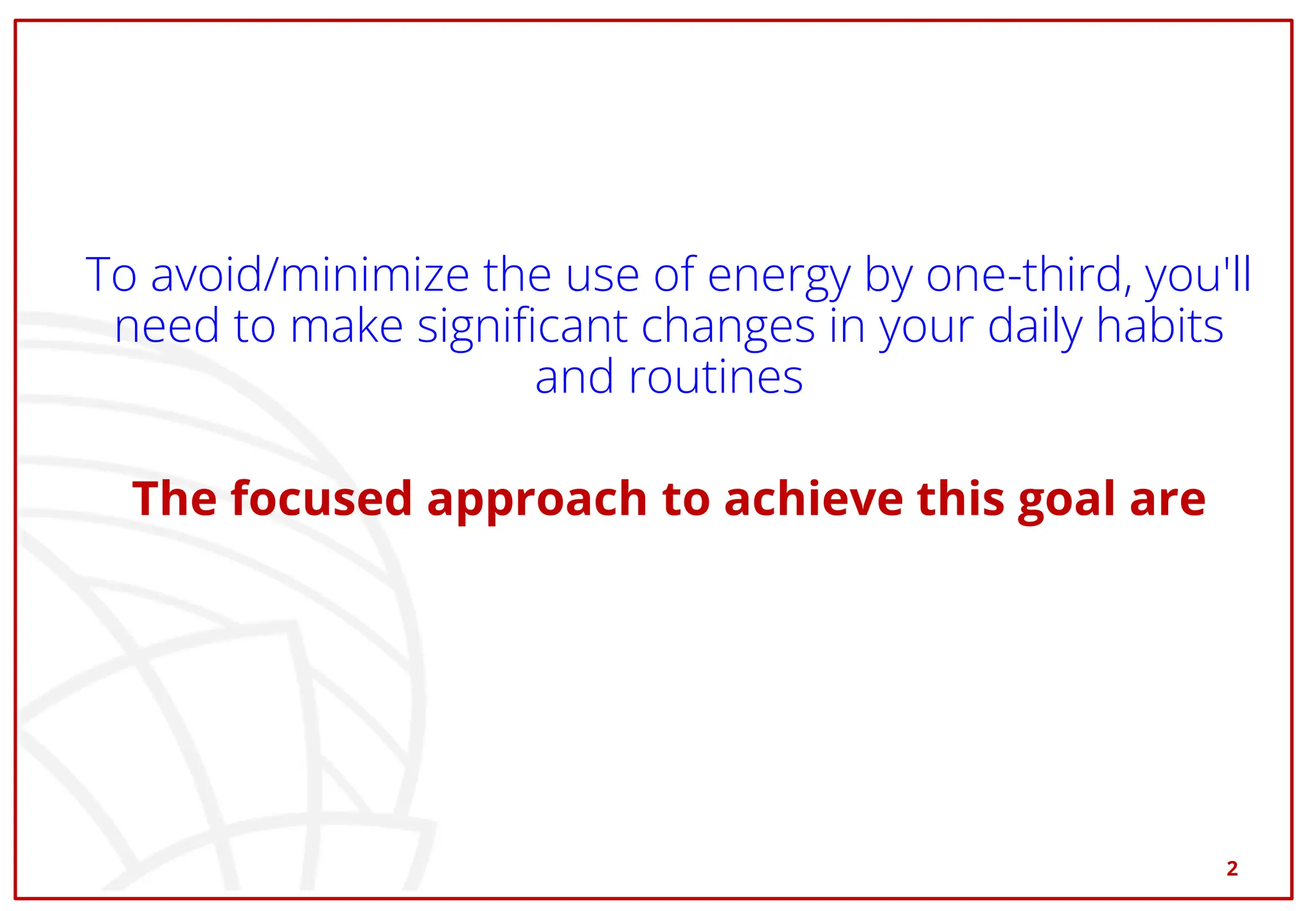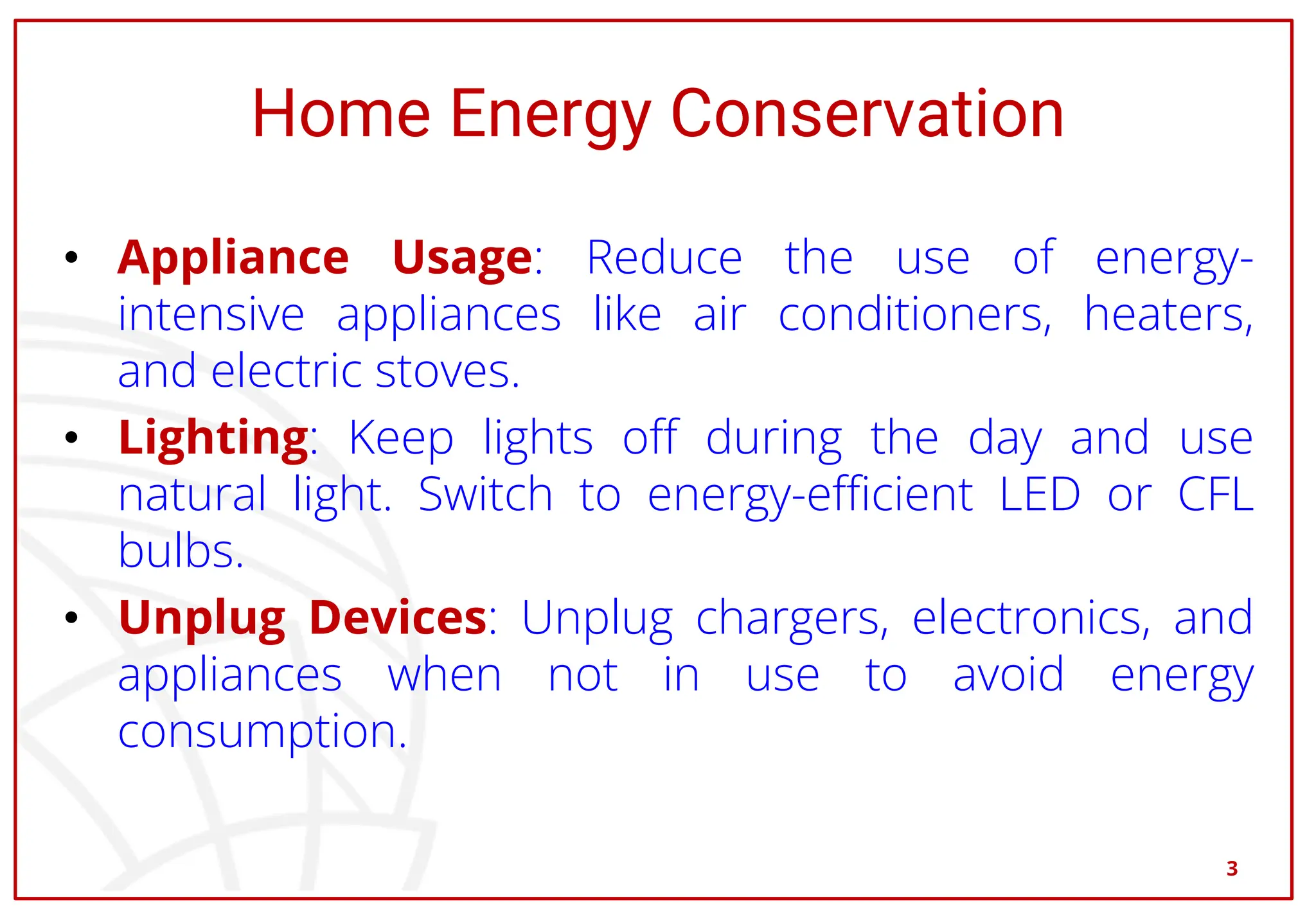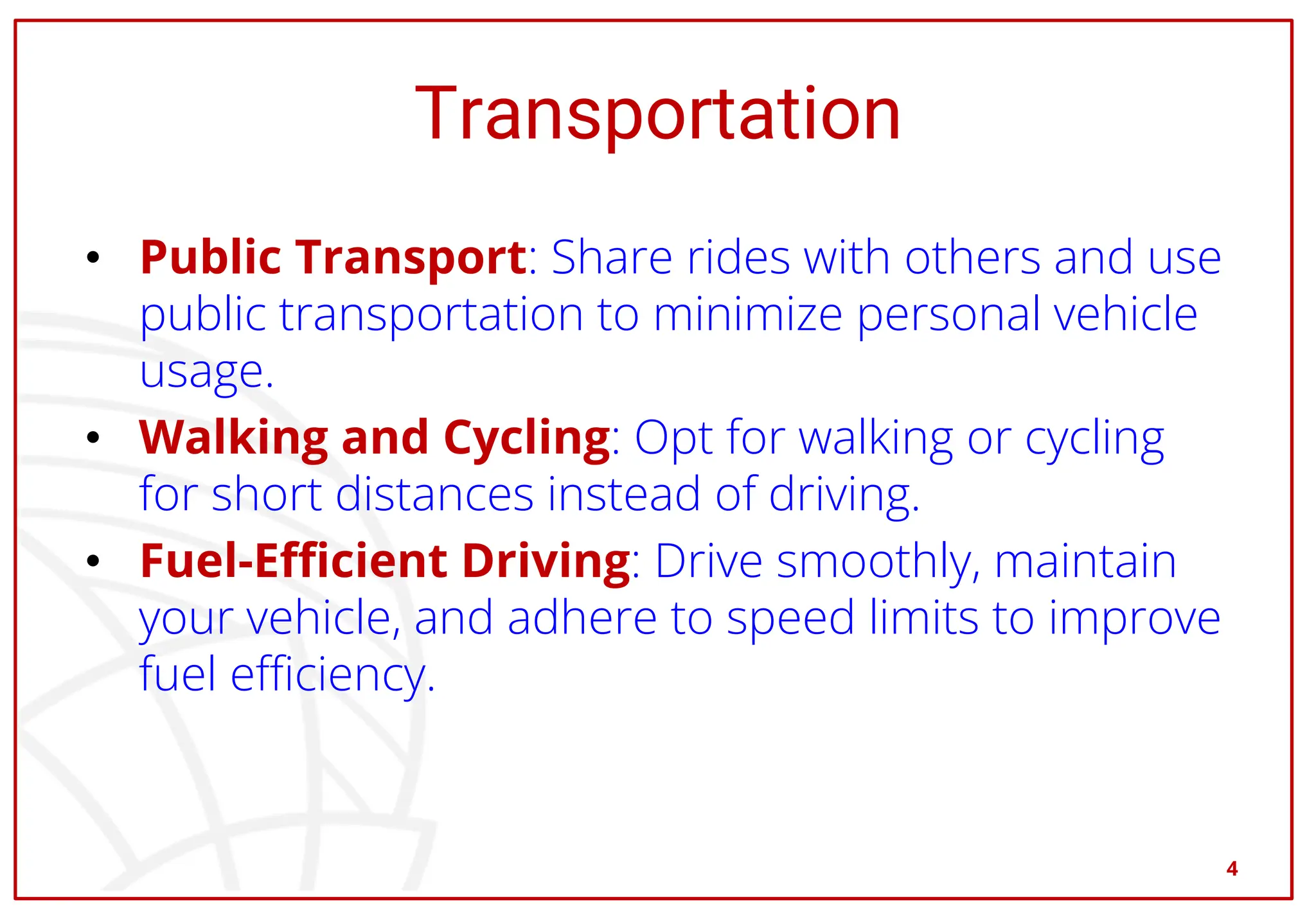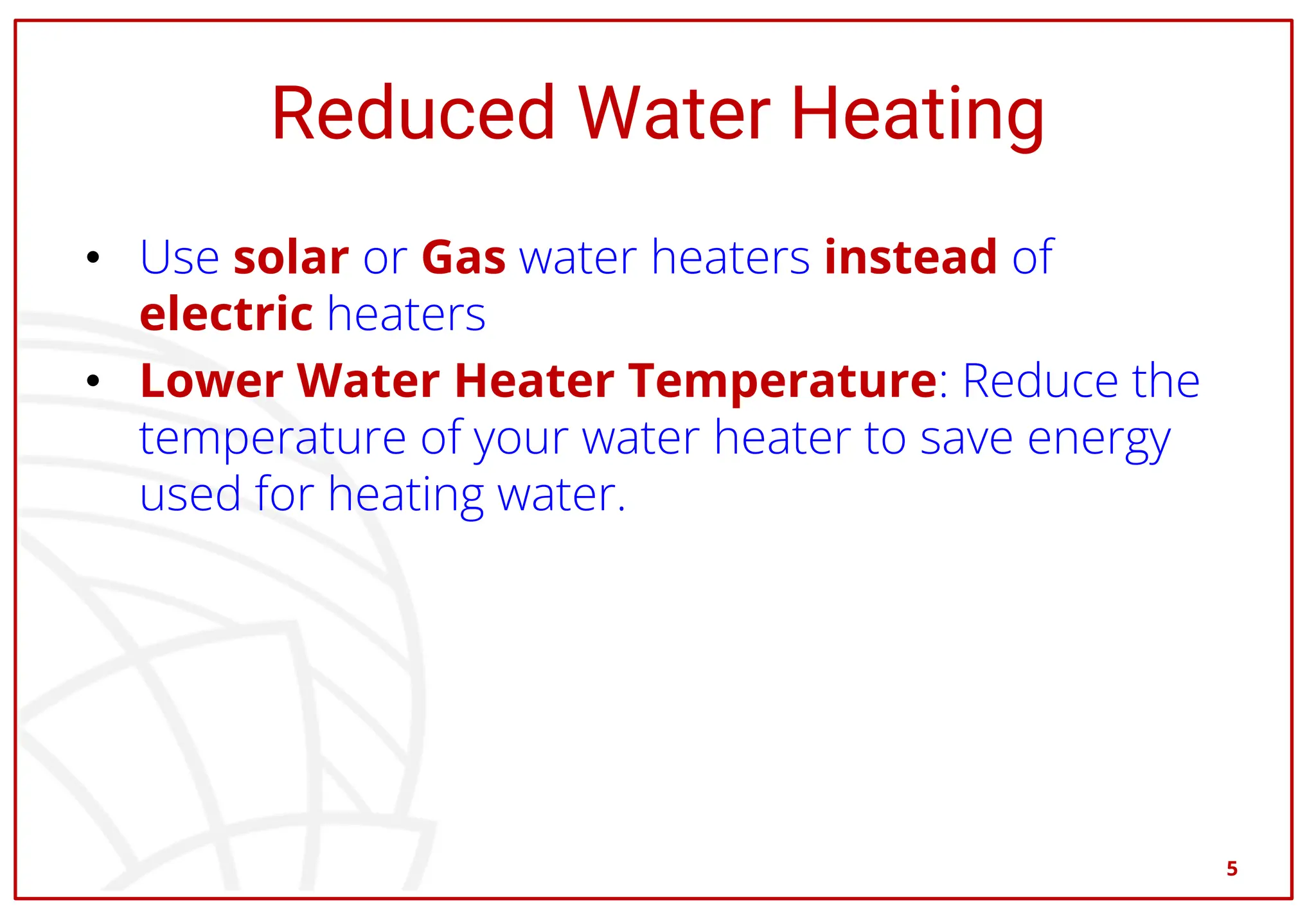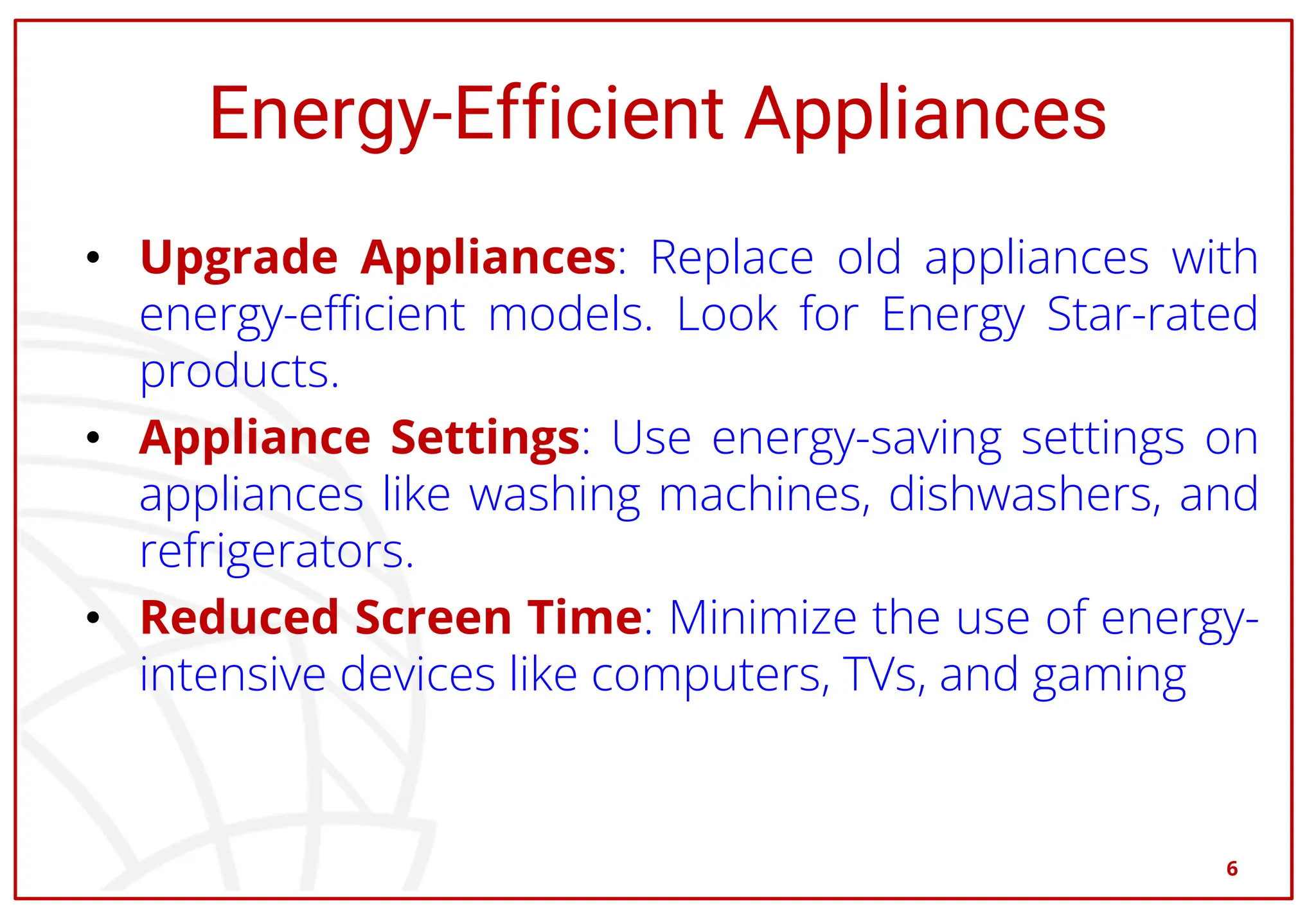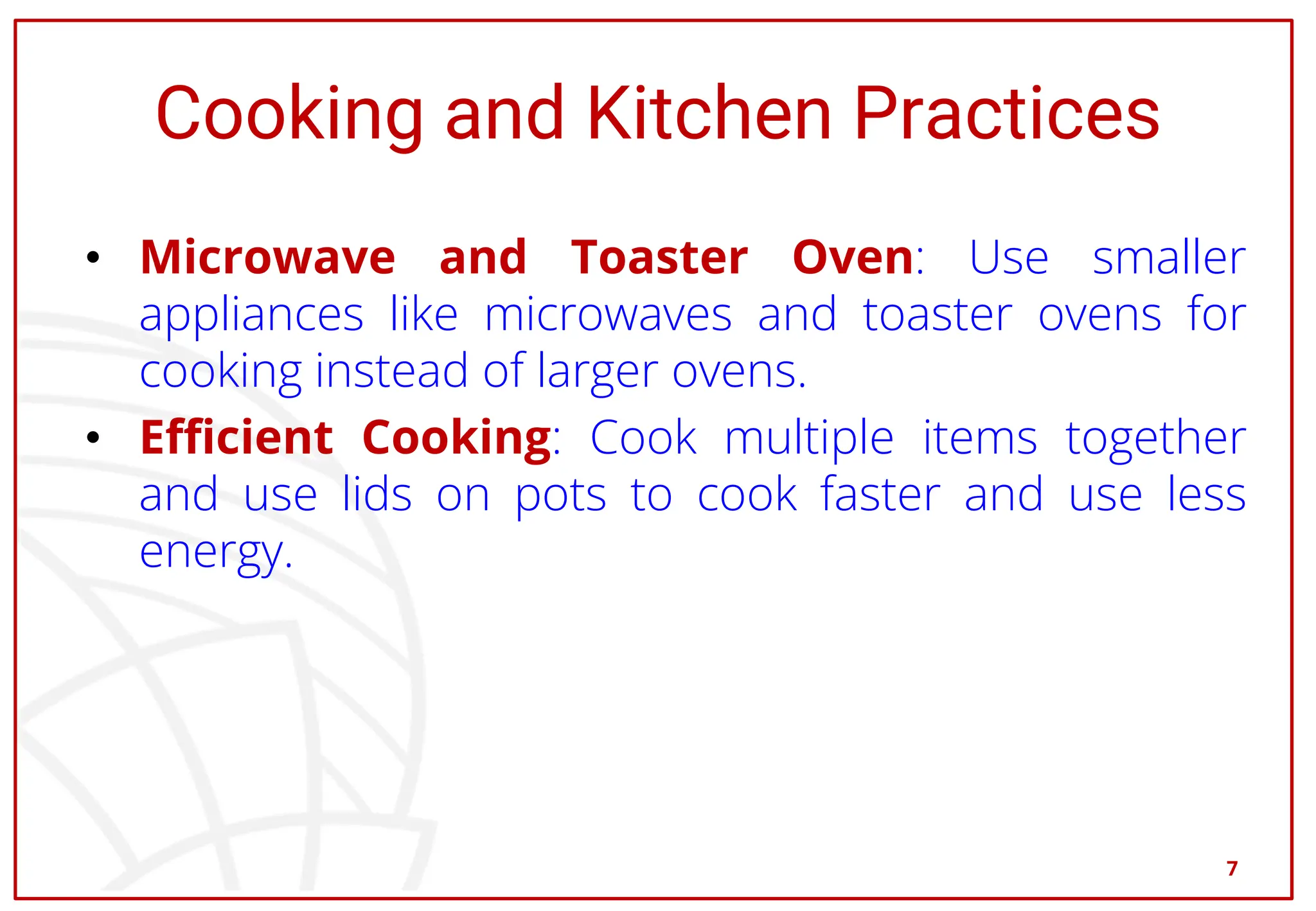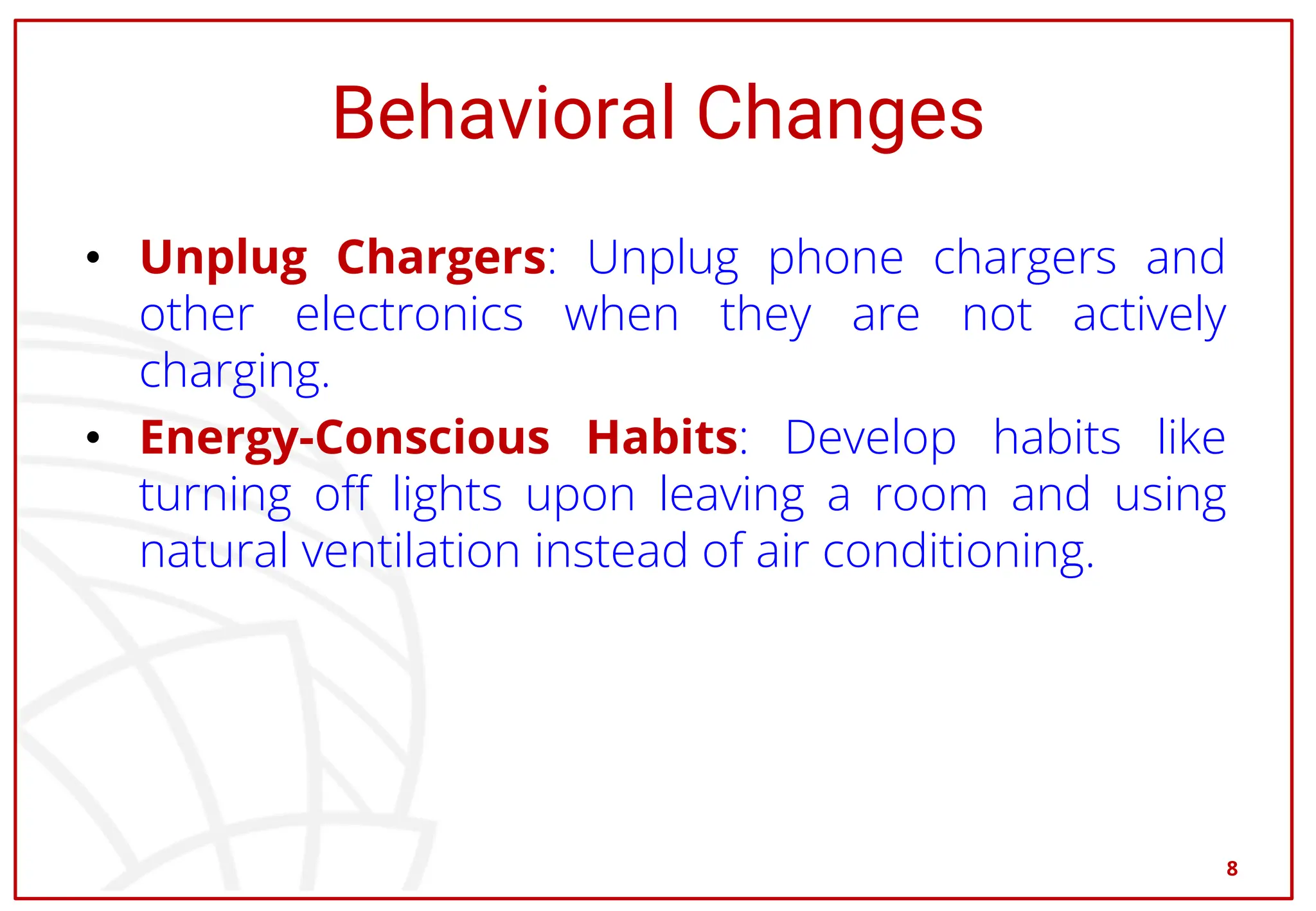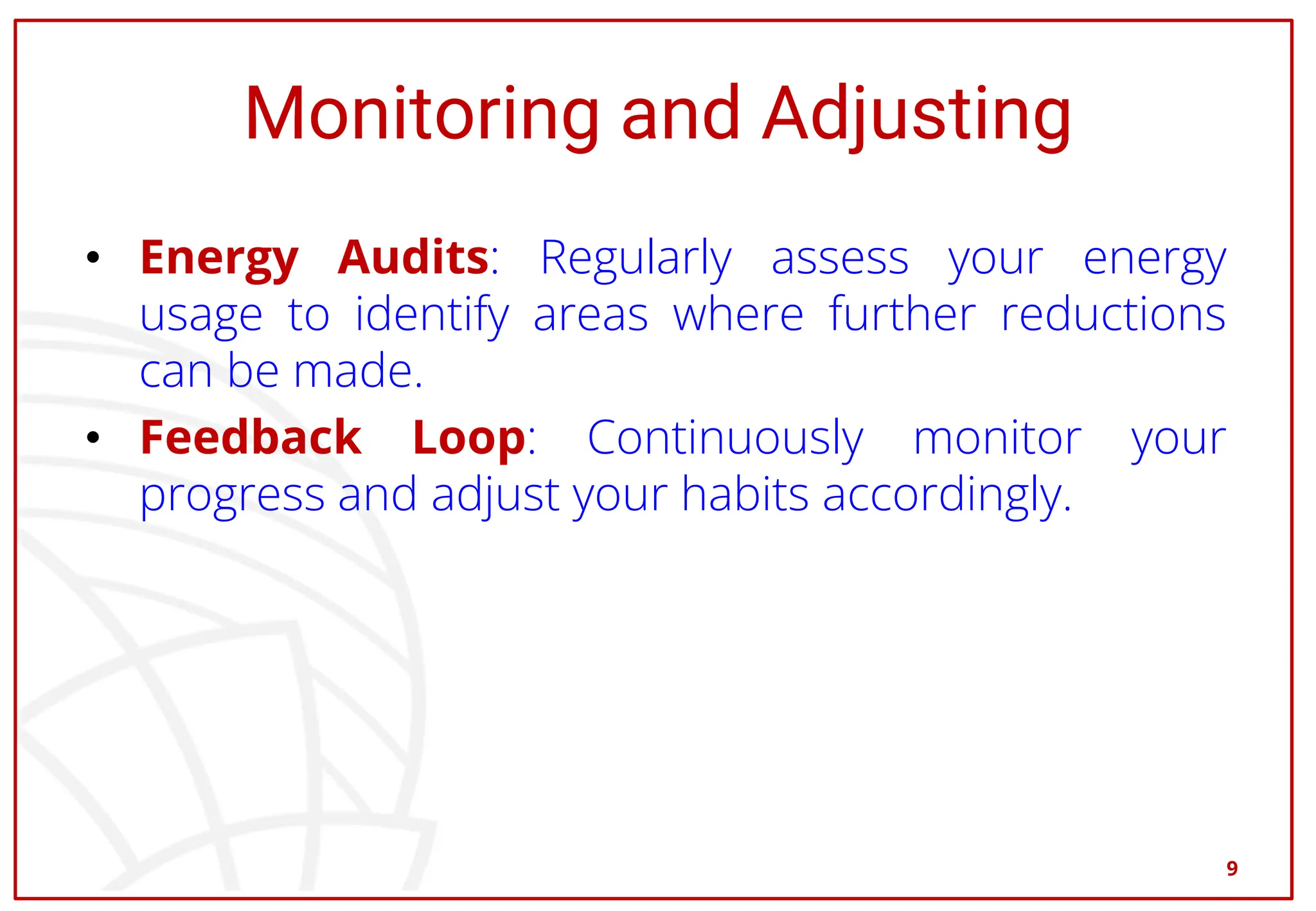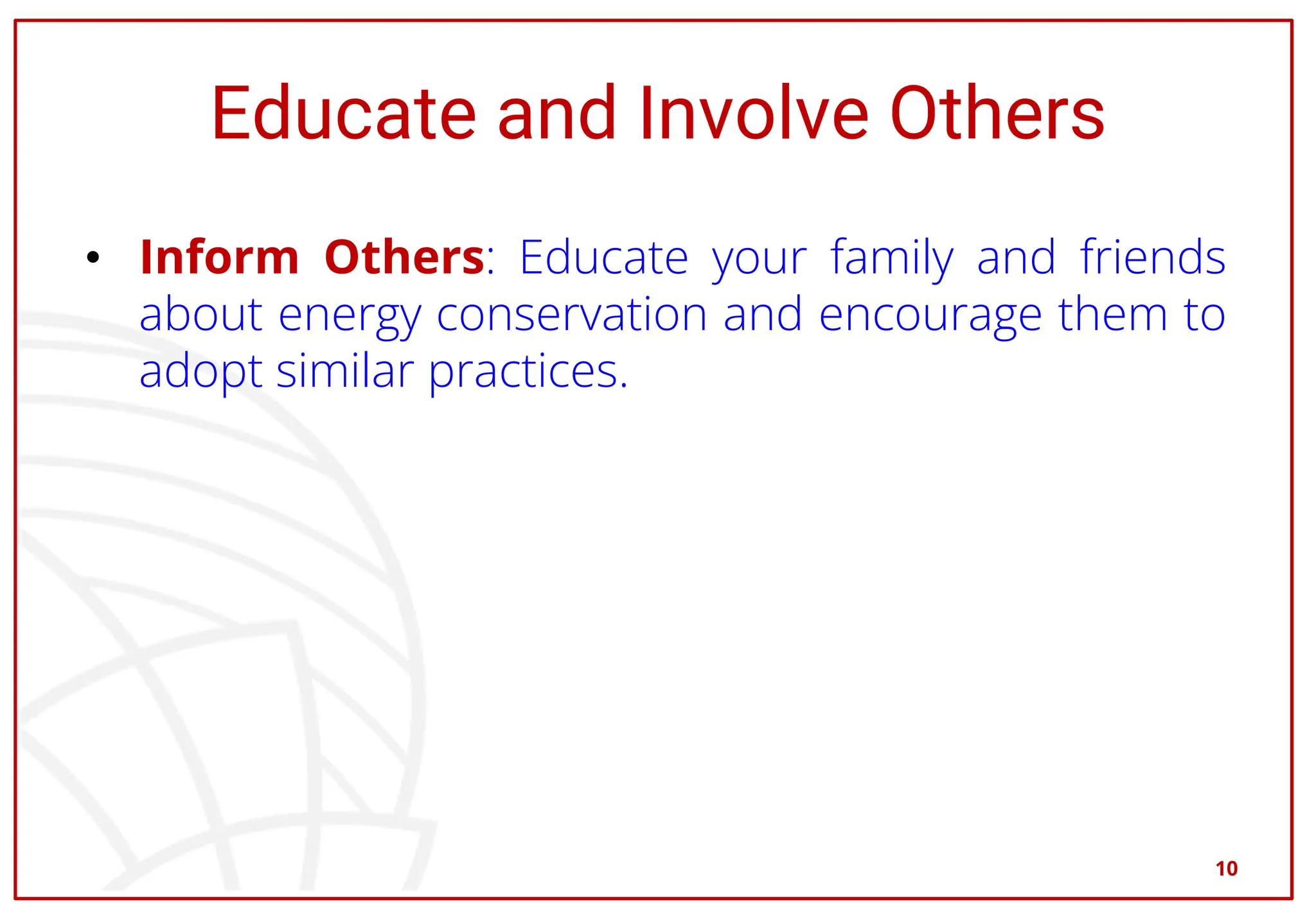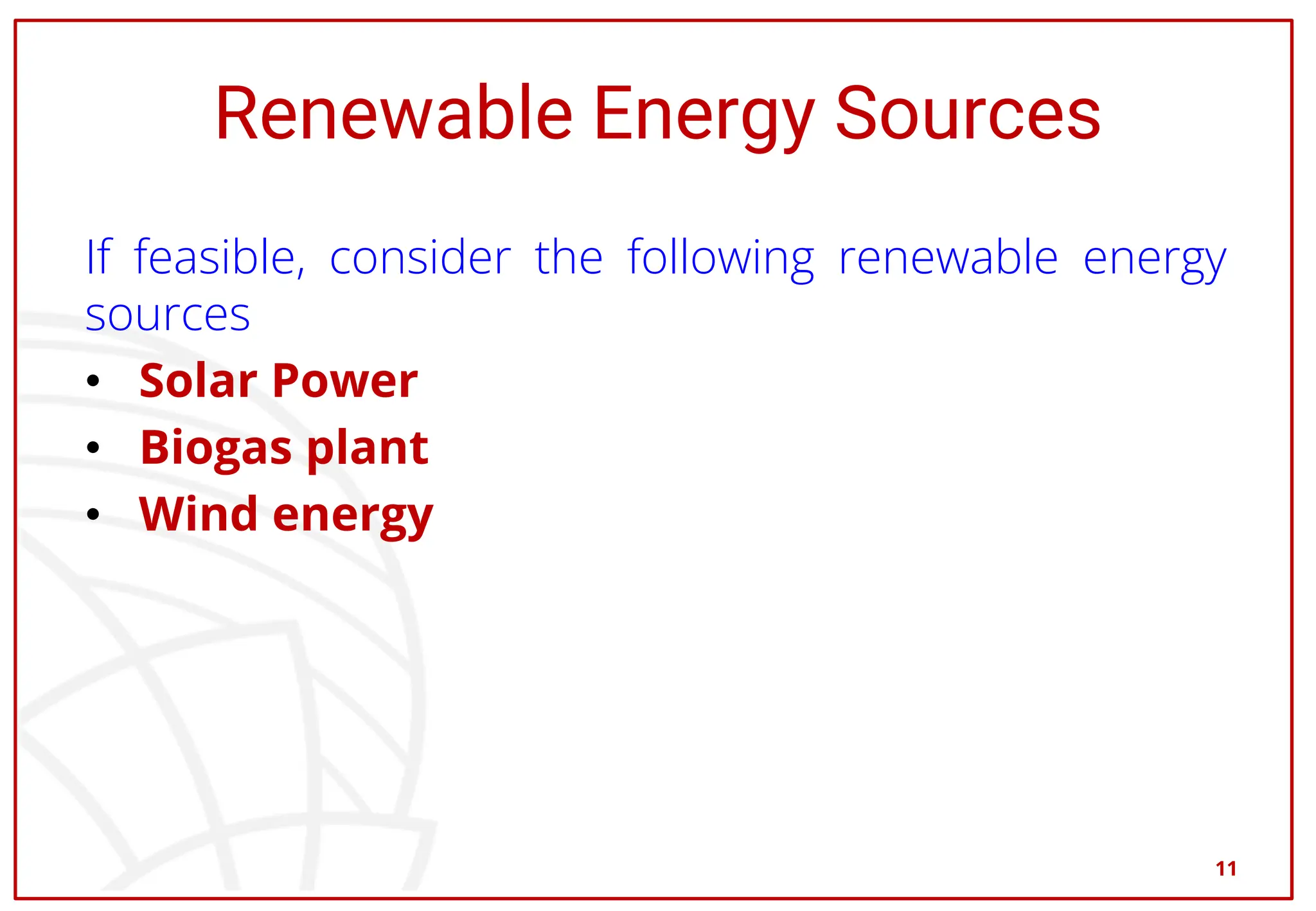The document provides tips for reducing home energy usage by one-third through changes in daily habits and routines. It recommends minimizing the use of appliances like air conditioners and electric stoves, using energy efficient light bulbs and unplugging unused devices. For transportation, it suggests using public transit, walking or cycling when possible. It also provides tips for water heating, upgrading appliances, efficient cooking practices, behavioral changes like unplugging phone chargers, conducting energy audits, and educating others. Lastly, it mentions considering renewable energy sources like solar, biogas, or wind power if feasible.
